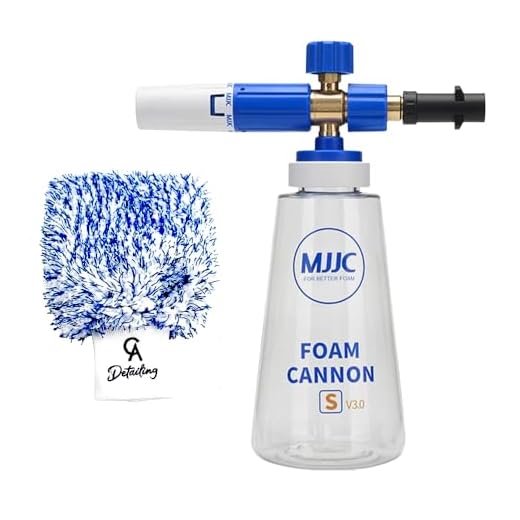



The optimal choice for enhancing the efficiency of your high-powered cleaning device lies in selecting a formula specifically designed for this purpose. Products such as sodium hypochlorite solutions are excellent for mould and mildew removal, while degreasers are indispensable for tackling oily grime on driveways and garage floors.
Biodegradable formulations, like those containing plant-based surfactants, not only provide effective results but are also environmentally friendly. For regular maintenance on exterior surfaces, go for a light-duty cleaner that ensures a consistent shine without harsh chemicals, thereby preserving the integrity of your surfaces.
Before applying any substance, confirm compatibility with the equipment by consulting the manufacturer’s guidelines. Compatibility ensures smooth operation and maximises performance. For larger areas, it’s wise to choose a concentrated solution to minimise waste while maintaining cleaning power.
Lastly, consider pre-treating heavily soiled areas for better results; a simple spray application allows the cleaning agent to penetrate dirt before pressure rinsing. This method can significantly enhance overall cleaning efficacy.
Recommended Solutions for Pressure Cleaning
Opt for biodegradable detergents, which are safe for the environment and effective on a variety of surfaces. These products break down organic stains while keeping your surroundings safe from harsh chemicals.
Alkaline-based formulas excel at removing grease and oil, particularly important for driveways and garage floors. Use these for heavy-duty cleaning when tackling stubborn residues.
For painted or sensitive surfaces, a pH-neutral soap preserves the finish while still providing adequate cleaning. It’s particularly suitable for washing cars and outdoor furniture.
Specialty treatments exist for specific materials, such as wood or concrete. Ensure to choose a product tailored to the surface you are working on to prevent damage.
| Surface Type | Recommended Product Type |
|---|---|
| Concrete | Alkaline-based cleaner |
| Wood | Specialty wood cleaner |
| Vehicles | pH-neutral soap |
| General Outdoor | Biodegradable detergent |
Always follow manufacturer instructions of both the equipment and the cleaning solutions. Compatibility ensures optimal results and protects your equipment from damage.
Choosing the Right Cleaner for Your Pressure Washer
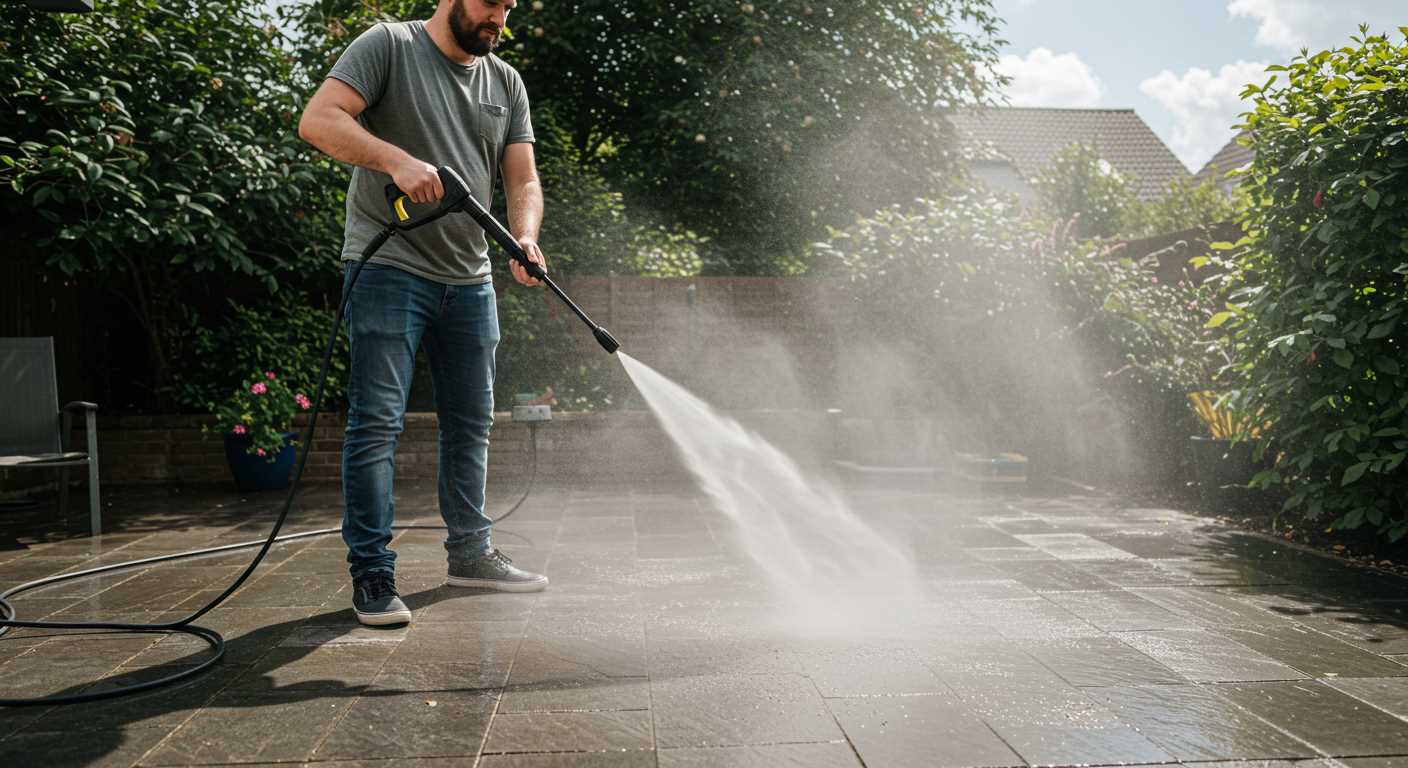
Opt for a biodegradable formula. Such products are not only effective in removing dirt and grime but also environmentally friendly. This choice aligns with sustainability practices while ensuring efficient cleaning without harmful residues.
Types of Solutions Available
- Multi-surface cleaners: Suitable for various materials, these solutions tackle diverse cleaning tasks effectively.
- Deck and patio cleaners: Specifically designed to penetrate thick stains on outdoor surfaces, ideal for wooden or composite materials.
- Heavy-duty degreasers: Use these for stubborn grease and oil stains. They provide robust cleaning power for driveways and garage floors.
- Car wash solutions: Formulated to safely clean vehicles, offering a gentle touch that protects paintwork while removing dirt.
Concentration and Application Tips
Choose a solution with optimal concentration levels for the specific task. Mixing according to the product instructions ensures maximum efficacy. Always test a small area first to gauge compatibility with the surface to prevent potential damage.
For application, consider the following:
- Use the correct nozzle for the chosen liquid. A soap nozzle is typically wider, allowing for thorough coverage.
- Apply the cleaner from the bottom up to avoid streaking and allow it to dwell for the recommended time for optimal results.
- Rinse thoroughly to remove all residues, ensuring surfaces are clean and free of any potentially harmful chemicals.
Each type of solution serves distinct cleaning needs. Be mindful of the surface material and specific staining issues to select the most appropriate option, thereby enhancing cleaning effectiveness while prolonging surface life.
Types of Cleaners Suitable for Different Surfaces
For concrete, a mixture of sodium hypochlorite and water effectively removes stains and mould. Consider a biodegradable formula for the environment and surface safety.
For wood decking, opt for a gentle solution containing sodium percarbonate. This helps brighten the wood while avoiding damage to the surface. Avoid harsh chemicals that can strip the finish.
On vehicles, a pH-neutral auto soap is ideal. It’s specifically designed to clean without damaging the paint or wax layers. Ensure it’s rinsed thoroughly to prevent spotting.
Metal surfaces respond well to degreasers, particularly those featuring orange oil as an active ingredient. This cuts through grease and grime effectively without leaving a residue.
For vinyl siding, a solution containing Trisodium Phosphate (TSP) mixed with water works wonders. It removes dirt and algae without harming the siding’s finish.
Natural stone, such as granite or slate, should be treated with a mild, acidic cleaner to preserve its integrity. Avoid products with high alkali content which can lead to etching.
Lastly, for roofs, a specially formulated roof cleaner containing sodium hypochlorite will effectively eliminate moss and lichen growth without damaging the shingles.
How to Dilute Concentrated Cleaners for Pressure Washing
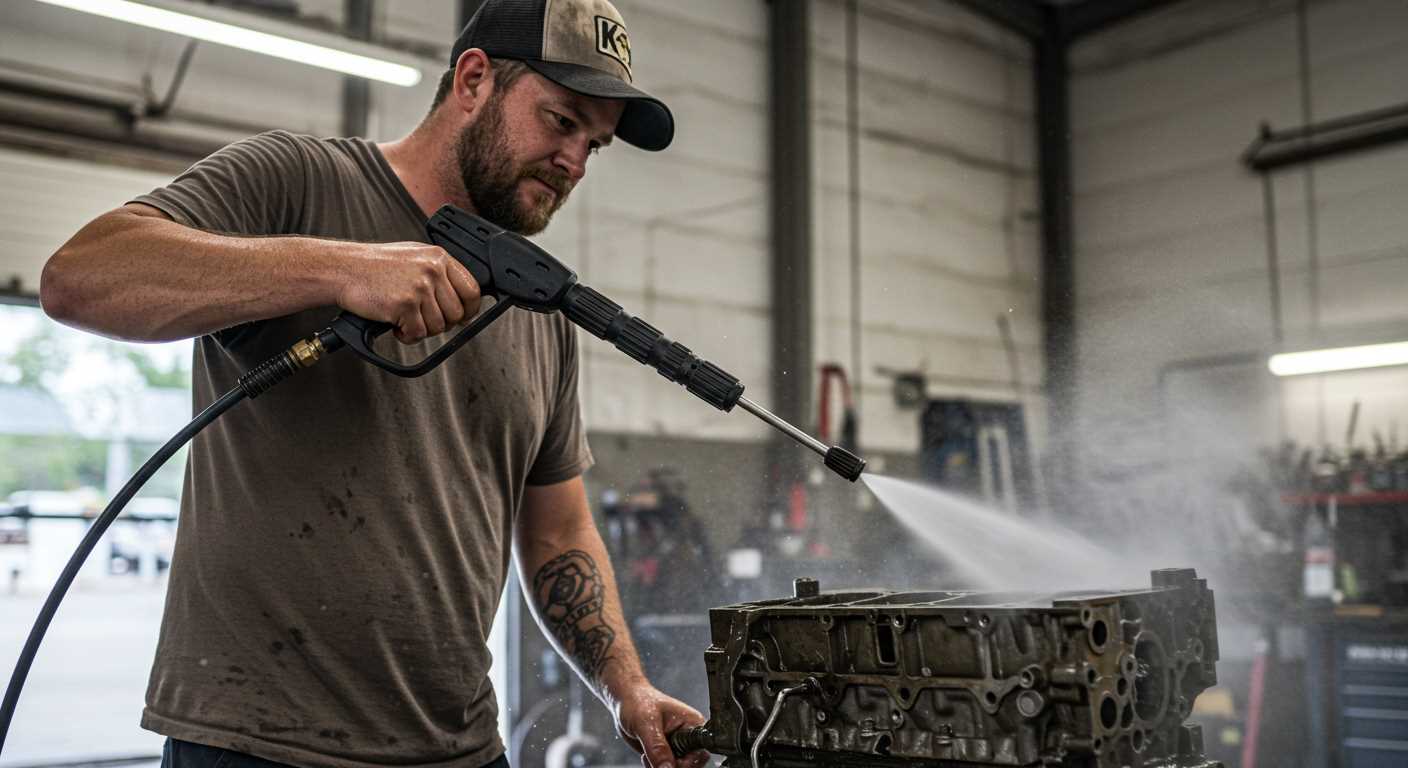
Mix concentrated solutions accurately by following the manufacturer’s instructions on the label. Typically, the ratio is specified, often ranging from 1:4 to 1:10, depending on the level of grime and the type of surface.
Begin by measuring the concentrated substance using a measuring cup to ensure precision. For example, if the label advises a 1:4 ratio, combine one part of the concentrate with four parts of water. Use clean, warm water to aid the mixing process, but avoid hot water unless specified, as it can deactivate some formulas.
Material-wise, utilise a clean bucket for mixing, allowing ample space for the solution to combine thoroughly. Stir gently with a stick or ladle until it’s uniformly blended. Leaving undiluted sections can lead to inconsistent cleaning results.
After blending, transfer the diluted mixture into the pressure washing equipment as per the guidelines. Always check seals and connections to prevent leakage during the application.
Note that the dilution varies for different surfaces. Porous materials may require a stronger mix, while delicate surfaces like car paint or wood may need a more diluted approach. Testing in a small area first ensures compatibility without damage.
Lastly, store any leftover mixture in a sealed container, labelled with the dilution ratio and date of mixing, to maintain its efficacy for future jobs.
Environmental Considerations When Selecting Cleaners
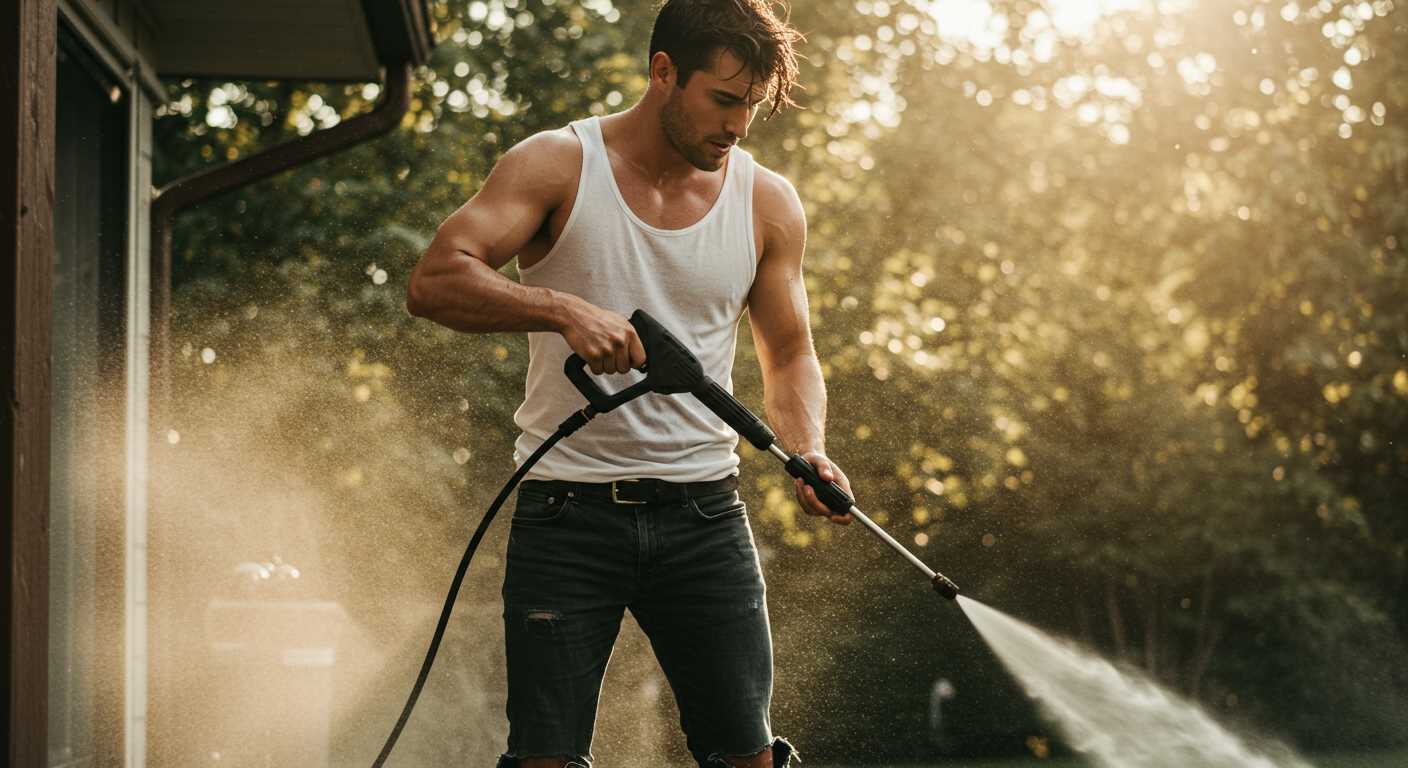
Prioritising eco-friendly options is paramount. Opt for biodegradable formulas that break down naturally without harming aquatic life or disrupting ecosystems. Look for products certified by environmental organisations, ensuring they meet stringent safety standards.
Evaluate the pH level of the solution. A balanced pH (around 7) is less likely to damage vegetation and soil compared to highly acidic or alkaline choices. Avoid substances containing phosphates, as these can contribute to nutrient pollution in waterways.
Packaging is another aspect to consider. Choose items with minimal packaging or made from recycled materials to reduce waste. Concentrated products typically require less packaging, making them a better choice from an environmental standpoint.
When using such solutions, apply them judiciously. Over-application not only wastes the product but can also lead to runoff, affecting local water sources. Implementing application techniques that minimise excess will help protect your surroundings.
Investigate local regulations regarding cleaning agents. Many areas have restrictions on certain chemicals due to their environmental impact. Ensuring compliance not only avoids legal issues but also supports community health.
By being diligent about these factors, sustainable cleaning practices can be achieved, safeguarding nature while effectively tackling dirt and grime. Make informed decisions to create a cleaner, healthier environment with every use.
Using Biodegradable Cleaners with Pressure Washers
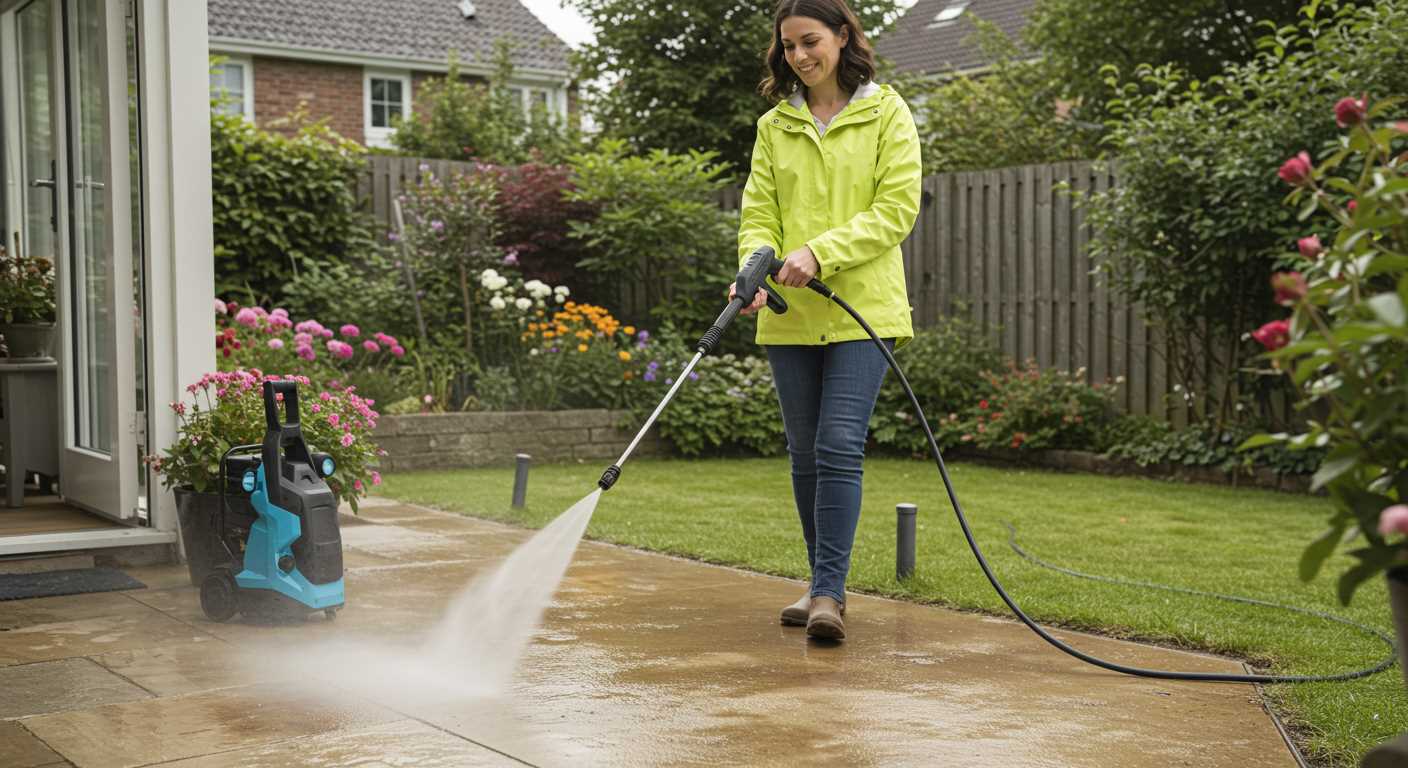
Biodegradable solutions are an excellent choice for environmentally-conscious cleaning enthusiasts. These products break down naturally, minimising environmental impact while maintaining effective cleaning power. I recommend looking for concentrates made from plant-based ingredients, which offer a safe and efficient way to tackle grime without harming ecosystems.
When selecting a biodegradable product, ensure that it is specifically formulated for high-pressure machinery. Always read the label for compatibility information, ensuring it can withstand the pressure applied during operation. Many brands provide detailed guidelines on mixing ratios, enabling optimal results without causing damage to the equipment or surfaces.
Before starting, perform a patch test on a small, inconspicuous area to verify that the chosen formula does not negatively affect your surface. For a broader cleaning project, apply the solution evenly and allow it to dwell for a few minutes, which enhances its effectiveness against stubborn dirt and stains.
While cleaning, maintain a safe distance between the nozzle and the surface to prevent any potential damage, especially when utilising stricter biodegradable compositions that might require a gentler touch. After cleaning, rinse thoroughly to ensure no residue remains, preserving both the surface finish and the surrounding environment.
For those with a garden or landscaping close to the cleaning area, opt for products that are certified as non-toxic to aquatic life. This is particularly relevant if runoff may reach plants or bodies of water. Remember, selecting the right biodegradable option not only refreshes your surfaces but also respects the planet’s ecosystem.
Best Additives for Enhancing Cleaning Power in Pressure Washers
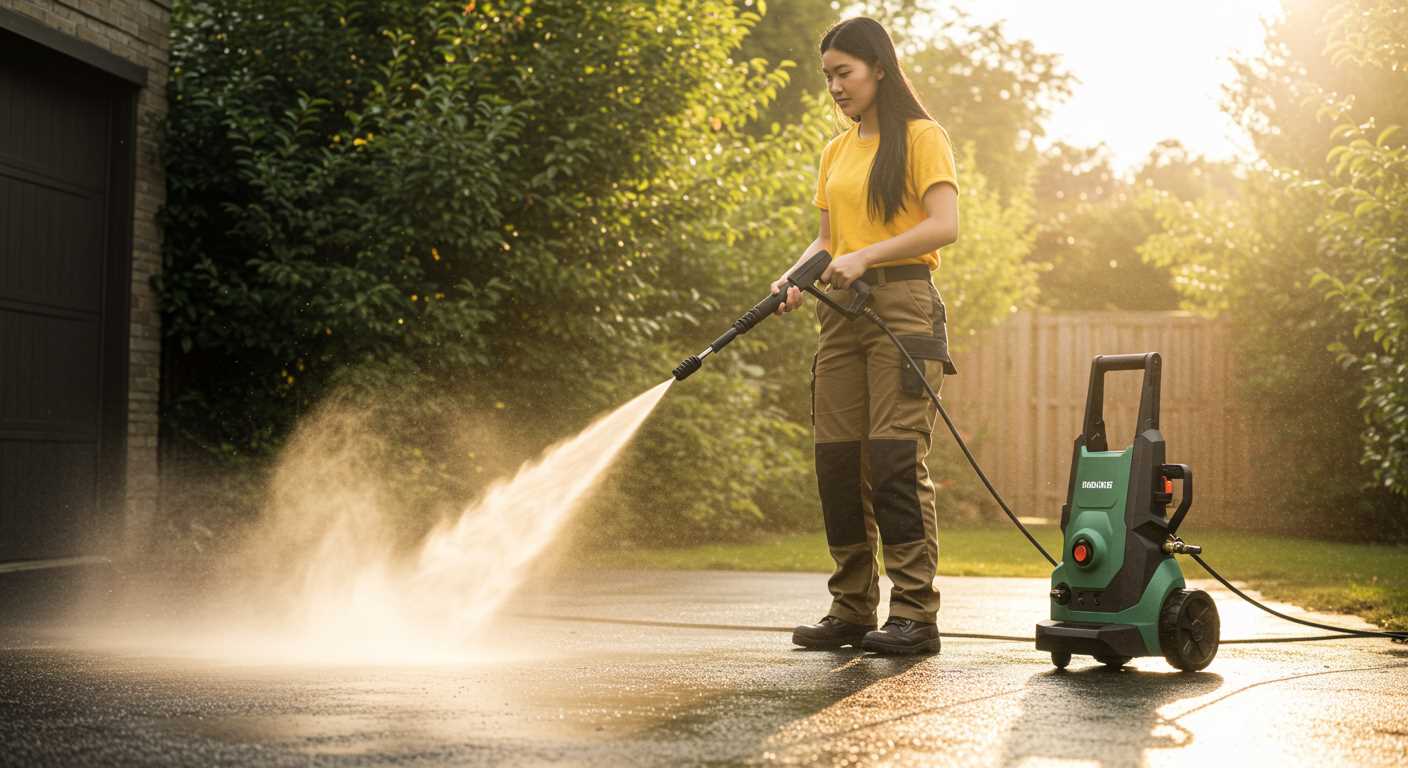
Opt for dedicated detergents that are formulated specifically for high-pressure systems. These offer optimal results and compatibility, ensuring that the performance of your machine isn’t compromised.
Recommended Additives
- Alkaline Cleaners: Effective for breaking down grease and oil. Ideal for driveways, garages, and patios.
- Degreasers: Perfect for automotive applications. They tackle tough grime on engines and machinery.
- Fungicides and Mildew Removers: Essential for deck cleaning. They prevent the regrowth of mould after washing.
- Enzymatic Cleaners: Recommended for organic stains, such as those from food or pet waste. Safe for various surfaces and biodegradable.
Enhancing Performance
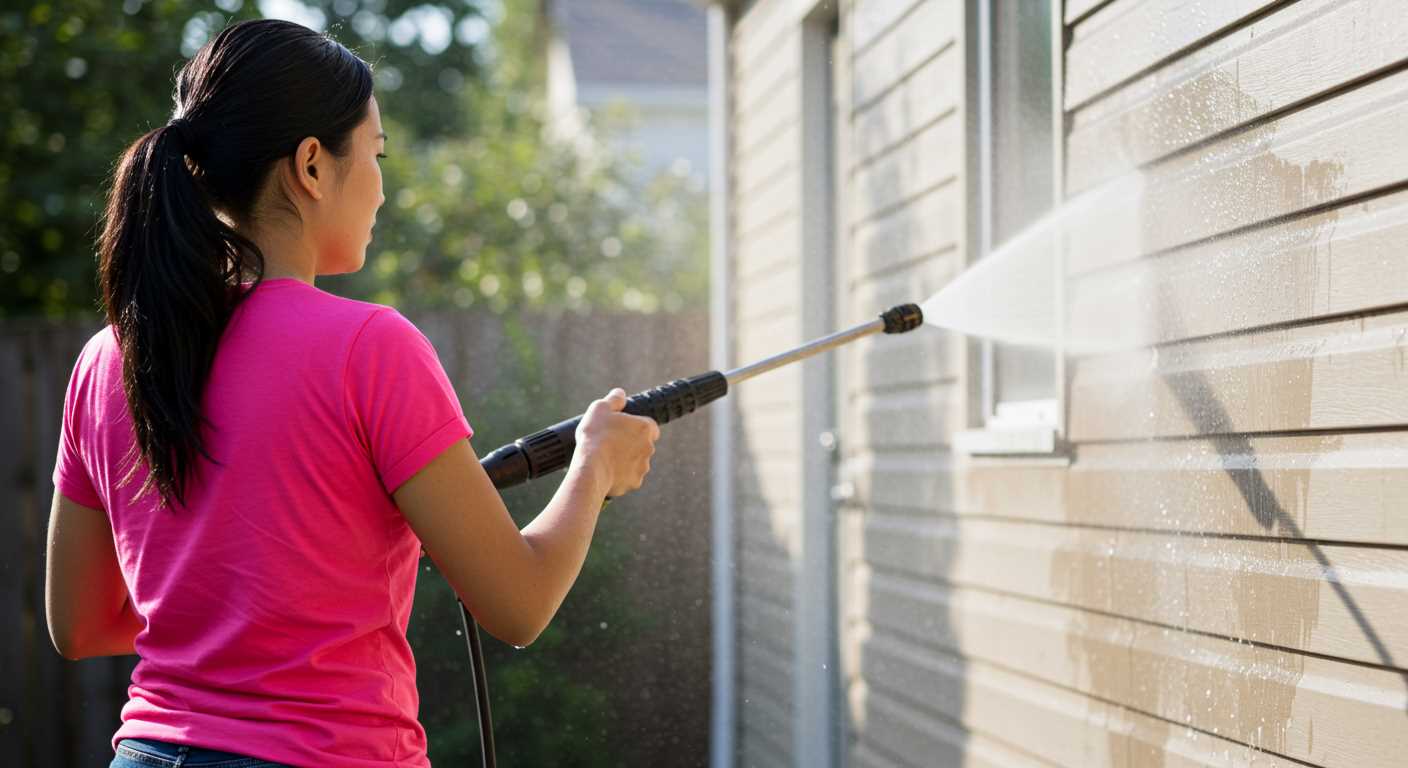
Concentrated solutions require dilution according to manufacturer instructions. Achieving the right ratio maximises efficiency while safeguarding the components of the equipment. For best results, consider mixing according to the following guidelines:
- For light cleaning–1 part additive to 10 parts water.
- For moderate stains–1 part additive to 5 parts water.
- For heavy-duty jobs–1 part additive to 2 parts water.
Using the correct mixture not only improves cleaning power but also extends the lifespan of your unit. Prioritise the readings on the packaging for accurate mixing.
Safety Precautions When Using Cleaners with Pressure Washers
Always wear protective gear such as safety goggles, gloves, and sturdy footwear to shield yourself from harmful substances and debris. Ensure the area is well-ventilated, particularly when employing harsh solutions. Inhale potential fumes can lead to respiratory issues.
Never mix different products unless explicitly stated by the manufacturer, as reactions can create dangerous gases or hazardous substances. Follow dilution instructions meticulously; concentrated formulas can cause damage to surfaces or cause harm to human skin.
Protecting Surroundings
Cover nearby plants and delicate surfaces with tarps or plastic sheets to prevent unintentional damage from overspray. Be cautious around electrical outlets and wires. Maintain a safe distance from windows and vehicles to avoid inadvertent harm.
Dos and Don’ts
Do test any new solution on a small inconspicuous area to evaluate its reaction. Do not use a pressure-washing device for prolonged periods without taking breaks; this helps prevent fatigue and maintains focus. Always follow the manufacturer’s guidelines for both the washing apparatus and the selected cleaning agents.




